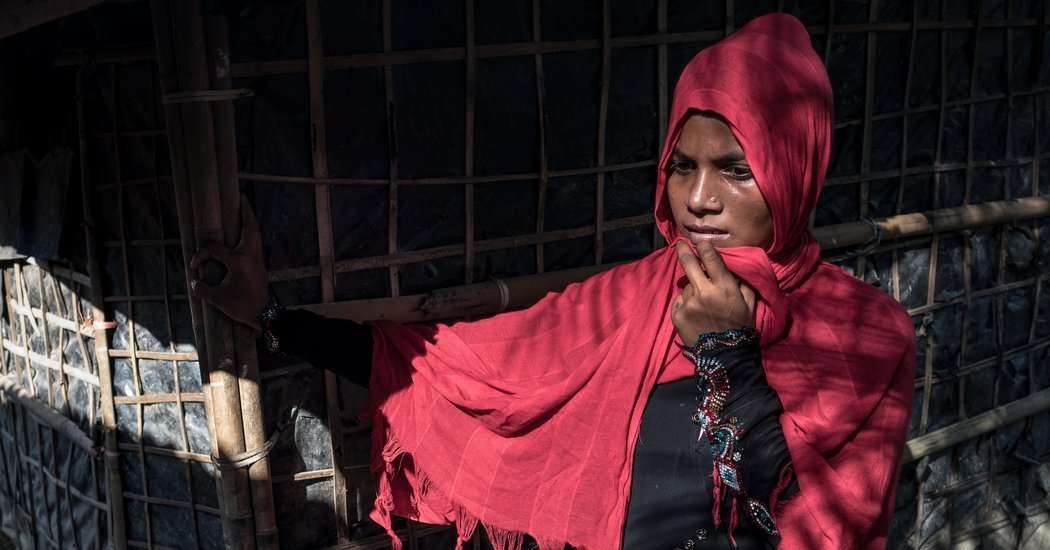Much of the violence was flamboyantly brutal, intimate and personal — the kind that is detonated by a long, bitter history of ethnic hatred.
“People were holding the soldiers’ feet, begging for their lives,” Rajuma said. “But they didn’t stop, they just kicked them off and killed them. They chopped people, they shot people, they raped us, they left us senseless.”
Human rights investigators said that Myanmar’s military killed more than 1,000 civilians in the state of Rakhine, and possibly as many as 5,000, though it will be hard to ever know because Myanmar is not allowing the United Nations or anyone else into the affected areas.
Peter Bouckaert, a veteran investigator with Human Rights Watch, said there was growing evidence of organized massacres, like the one Rajuma survived, in which government soldiers methodically slaughtered more than 100 civilians in a single location. He called them crimes against humanity.
On Wednesday, the United Nations human rights office said that government troops had targeted “houses, fields, food-stocks, crops, livestock and even trees,” making it “almost impossible” for the Rohingya to return home.
Myanmar’s army has claimed it was responding to an attack by Rohingya militants on Aug. 25 and targeting only the insurgents. But according to dozens of witnesses, almost all of the people killed were unarmed villagers, and many had their hands bound.
Satellite imagery has revealed 288 separate villages burned, some down to the last post.
Human rights groups said the government troops had one goal: to erase entire Rohingya communities. The unsparing destruction drove more than half a million people into Bangladesh in recent weeks. United Nations officials called the campaign against the Rohingya a “textbook example” of ethnic cleansing.
Nearly each night here in coastal Bangladesh, up the Bay of Bengal from Myanmar, bodies wash up in the foamy brown tide — children, men, old women who tried to escape on leaking boats, their faces bloated from seawater.
Rajuma barely made it to Bangladesh, escaping on a small wooden boat a few weeks ago. She cannot read or write. She does not have a single piece of paper to prove who she is or that she was born in Myanmar. This may be a problem if she applies for refugee status in Bangladesh, which has been reluctant to give it, or ever tries to go home to Myanmar. She thinks she is around 20, but she could pass for 14 — painfully thin, with wrists that look as if they could easily break.
She grew up in a rice farming hamlet called Tula Toli, and said the place had never known peace.

mk72206 on October 13rd, 2017 at 14:57 UTC »
This might be the most disturbing sentence I've ever read.
cosgyp on October 13rd, 2017 at 12:23 UTC »
What is it with this country? Is the military just running things how they like it?
edit: Thanks kind strangers, it was just a simple question. It's a very curious situation. Dooble thanks to my gilderer hugs
rebelrob0t on October 13rd, 2017 at 08:46 UTC »
Wtf.......i don't know what else to say.